

Things To Do
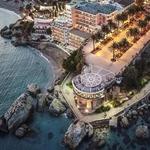
Balcon De Europa
The Balcony of Europe, a former ninth-century fortress, is situated on the cliff that separates the beaches of Salón and Calahonda, where it was placed to so-called Low Castle of Nerja, built in the early sixteenth century. This castle was remodeled in the eighteenth century to provide it with a battery of canons. The Balcon de Europa is also part of Nerja's Old Town. Known for its traditional Andalusian atmosphere, the Old Town is a charming labyrinth of narrow, cobbled streets and whitewashed houses with flower-filled balconies. It's a popular area for strolling, shopping, and dining, offering a glimpse into the town's history and culture.
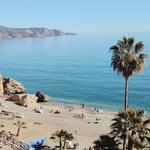
Nerja's Beaches
Nerja, located on the Costa del Sol in southern Spain, is known for its stunning beaches that blend dramatic cliffs, turquoise waters, and charming Andalusian atmosphere. Nerja offers excellent snorkeling opportunities, particularly along its cliffs and beaches with rocky areas. Popular spots include the Playazo and Torrecilla beaches (at either end), around the Balcon de Europa, and anywhere with rocky outcrops.
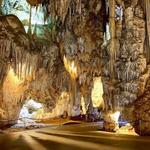
Nerja Caves
The caves of Nerja are a captivating, intricate, beautiful natural work of art. Visiting the Nerja Caves will take you through a breathtaking underworld of stalactites, stalagmites and other extraordinary rock formations. They are definitely one of the top things to do in Nerja.
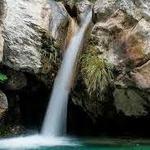
Rio Chillar
The Rio Chillar hike is probably the best known of all the hikes in the province. It is 15 km long for the most courageous and of medium difficulty.
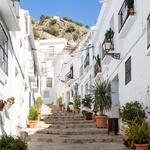
Visit Frigiliana
Only a 15-minute drive from Nerja, Frigiliana is a beautiful place with traditional terracotta roofs and stairways lined with flower pots. Amongst the streets, you’ll find boutique stores selling crafts and stylish gifts, eateries, and small boutique stays. For the best views over the sea and tiled roofs, wander up the steps to the village’s highest point.
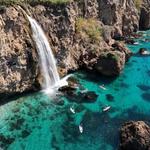
Maro Waterfall
Maro Waterfall, also known as Cascada de Maro, is a unique waterfall in Nerja, Spain, where water cascades from a height of 15 meters (roughly 50 feet) directly into the Mediterranean Sea. It's accessible by kayak or paddleboard and is part of the stunning Cliffs of Maro-Cerro Gordo. The waterfall is particularly impressive during periods of high rainfall, when the flow is strong.
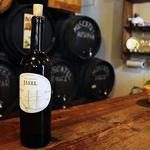
Nerja Wine Tours
Nerja offers several options for wine tours, including those focused on local wines and tapas, or those that venture further afield to nearby vineyards. These tours often include guided tastings, information about local wine production, and visits to cellars and vineyards.
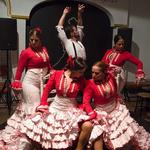
Live Music and Flamenco
Nerja offers a vibrant scene for live music and flamenco. Several venues showcase both, often featuring local musicians and dancers
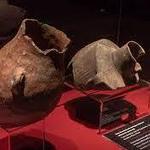
Nerja Museum
The Museo de Nerja, located in Plaza de España, offers a captivating journey through the region's rich history, from the Paleolithic era to the present day. Managed by the Nerja Caves Foundation, the museum is housed in a 17th-century sugar mill, adding historical charm to its exhibits.